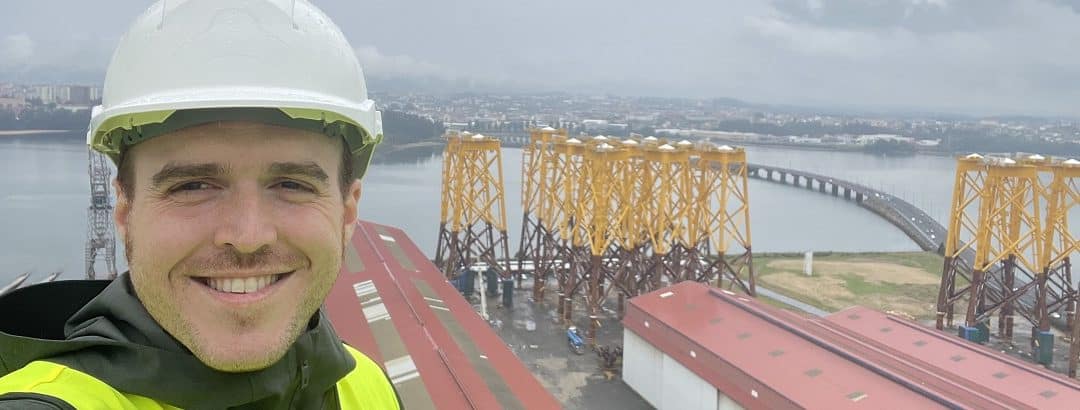26/06/2025
The Federation of European Risk Management Associations (FERMA) has prepared a report addressing the main threats that risk managers and companies will face in Europe, providing a necessary perspective to establish long-term strategies in the face of a complex horizon and a reality of constant change.
With the help of experts in different fields, and supported by a study committee, the NEXT (New EXposure Trends) report has been published, which “aims to serve as a tool for reflection” for professionals and stimulate debate across the industry on society and the global economy.
During the presentation of the report, Philipee Cotelle, member of the FERMA Board and chairman of the committee, stated that one of the main objectives of the publication is “to highlight the systemic barriers that make it difficult for businesses to exercise long-term risk management.” To this end, they examined four major critical areas: geopolitics, technological acceleration, human capital and climate change. Each topic was presented by a report collaborator.
“Power imbalances are causing unresolved conflicts”
To delve into the geopolitical dynamics that are coloring the international panorama, Daria Krivonos, CEO of the Copenhagen Institute for Futures Studies, presented a complex scenario for the European Union, noting that these aren’t just “a matter of security, but also of long-term stability and prosperity.” Krivonos focused on three major critical trends: the erosion of multilateralism, the disconnect with the United States and the impact of deglobalization, all of which contribute to producing a context of damaging uncertainty.
“For decades, the world has worked together through multilateral agreements – with the EU as a single block – but this has changed,” she stated, citing numerous organizations created in the 20th century, such as the United Nations or the World Trade Organization, which are ceding ground in various conflicts and, therefore, in society’s trust.
This lack of benchmark institutions has caused power imbalances that prevent conflict resolution, such as those in Ukraine or Gaza, or the difficulty of reaching international agreements on relevant issues like technology regulation or climate change. This situation is exacerbated by Europe’s tense relationship with the US, which has adopted a more protectionist policy, and is increasingly tending to negotiate bilaterally with EU member states, thereby weakening cohesion across the union.
“The third major factor is the trend toward deglobalization,” the expert stated, noting that this political and economic fragmentation is having a very negative impact on international trade. “Trade barriers, policies, and sanctions are being implemented. Everything is being used for geopolitical purposes, and things are changing nearly every day,” she said. In order to deal with Europe, Krivonos recommends diversifying supply chains and strengthening structural adaptability in the face of possible disruptions, which would mean overcoming the “urgent need for strategic autonomy” in key areas such as energy, defense and technology. Turning to risk management, she believes that “we must start to consider systemic risks and the most extreme scenarios,” and consider geopolitics as “a risk in itself.”
“If you can automate tasks, you can also automate attacks”
During his presentation, Sebastian Wieczorek, CEO of Mantix, addressed the challenge facing risk managers in leveraging technological acceleration by mitigating the uncertainty it entails. “We’re focusing now especially on Artificial Intelligence (AI), which, although not the only tool with disruptive potential, is probably the most notable innovation today,” he says.
Its main impact has been on business models and the market, where companies focusing on AI from the start are putting a lot of pressure on more traditional companies. Automation and the analysis of mass data they provide also generate a gravitational attraction effect, making it difficult for companies in different sectors to diversify. Companies are increasingly dependent on AI infrastructure and APIs.”
Another risk associated with automation is the substitution of people through task automation, which is a cause of great concern for many companies, especially those with a high proportion of their workforces doing work that could be done by an AI agent. Furthermore, this technification of work could usher in “greater economic inequality, as fewer companies will offer more services, which could concentrate market presence.”
From a technical perspective, there are two fundamental concerns. First there is the subject of cybersecurity, given that AI enables sophisticated attacks and autonomous hacking tools that are easy to implement in automated infrastructures with a large attack area. Secondly, the biases inherent in AI systems are practically inescapable in trained data, which could impact areas such as contracting or financing, and lead to legal responsibilities “that are currently only partially covered by current legislation,” he concluded.
“Climate change brings far-reaching and extreme consequences”
Paulino Fajardo, head of Disputes for EMEA at Herbert Smith Freehills LLP, addressed the risks deriving from climate change, which have profound implications for European companies and which encompass economic, regulatory and reputational dimensions. Aware as we may be of the international commitments in place to alleviate it, the characteristics of the dangers it presents are altogether less evident.
Firstly, it is an evolutionary risk, meaning it involves extreme and far-reaching consequences. This means that risk managers must ensure that companies quickly adapt to the guidelines and regulations, which are especially demanding in the European context. It may also require us to be alert to financial instability as a result of the changing environmental regulatory environment.
More pressing challenges include the climate change protection gap the insurance industry has to tackle with major natural disasters. Higher premiums and lower insurance market capacity make it more complex to access protection and reconstruction plans: “Risk managers have fewer tools and fewer resources available to them to protect the vulnerability of the companies they represent, both in the transition to a low-carbon society and in the reconstruction phases that follows this type of disaster,” he warned. This situation conveys pressure on public administrations and member states, so both industry and governments would need to create common funds or similar resources to help meet growing demand.
The last challenge to deal with is the fragmented regulatory environment. For its part, the EU has led the implementation of climate policy, but has made this progress alone, without the benefit of a coordinated response from other world powers. This situation has affected competitiveness, as the environment has gone from an ethical issue to a legal requirement. “Companies must demonstrate tangible progress, and the risk manager’s responsibility is to add tangible value that benefits shareholders and society,” the expert noted. This is a particularly critical requirement for emerging economies, where the regulation is perceived as a barrier to development, which generates political tensions within the EU.
“Young people expect a better work-life balance”
Sebastian Wieczorek, CEO of Mantix, took the floor again to talk about the risks related to the human capital of European companies. Enterprises of all sizes need to reconsider their talent strategy, employment models and long-term planning. The reason for this transformation lies in the need to combine work and personal lives. Employees, especially younger employees, are looking for a better work-life balance, which affects talent attraction and retention. “Companies that don’t meet these needs will have problems finding well-trained people, and will have to deal with lower levels of loyalty, retention and engagement,” says the expert, who adds that in this context “focusing on well-being and training is essential, as is rethinking traditional career paths,” as employees can change jobs frequently.
Another demographic aspect addressed in the report is the challenge of longevity and multigenerational teams: “Not only do we have an aging society – people are also able to work for much longer, and are increasingly willing to do so,” affirmed Wieczorek. This diversity in work teams can be assimilated into the implementation of learning initiatives throughout working life, so that each subject maintains their relevance within the work environment. The expert also recommended that companies consider “partial retirement or part-time plans to keep the workforce working as long as possible.”
Wieczorek once again addressed the impact of AI on companies. “More and more, part of the workforce will behave as managers, supervising AI systems instead of other employees.” This dawning reality is changing the way skills are analyzed, where the ability to solve problems is much more important than the basic experience. “It’s crucial that we help our workforces navigate these complexities and adapt to these changing work environments,” he concluded.





